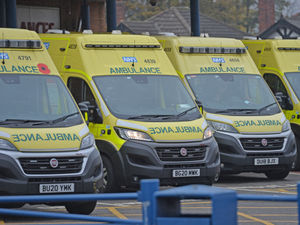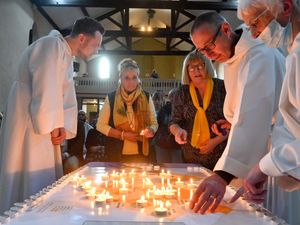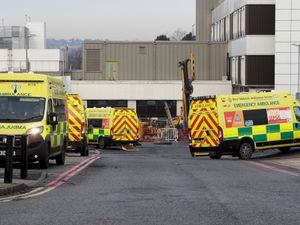'Worst winter ever' warning for region's hospitals with ambulance delays set to get worse
Health services across the region are braced for the toughest winter in living memory as services battle to cope with soaring demand.

GPs, hospitals and ambulance and mental health services are facing a “particularly challenging period” due to Covid and flu cases, rising patient numbers and staff shortages, NHS bosses have said.
Richard Beeken, chief executive of Sandwell and West Birmingham NHS Trust, said the winter would be the toughest ever seen, while ambulance service bosses warned already-long delays are likely to deteriorate further as demand surges.
It came as bosses said plans would be unveiled in the coming days for the reintroduction of visits in hospitals across the region.
They have agreed on a new winter plan which has looked at where the biggest gaps are likely to be between demand and capacity until the end of March.
Demand is expected to hit its peak early next year, when services will be under most strain due to patient numbers being at their highest levels.
Mr Beeken - who runs the trust in charge of Sandwell and City hospitals - said the situation had been compounded by NHS-wide staff shortages, which have resulted in thousands of vacancies left unfilled across the region. But he said health bodies were committed to working together more effectively than they had done in the past to ensure patients get the best possible care and staff don’t feel overwhelmed.
Part of the plan includes speeding up discharge times and delivering rapid treatment for people who don’t need to be admitted to a bed, Mr Beeken added.
He urged people to help out by getting vaccinated against flu and Covid, and limiting transmission through adhering to social distancing measures and mask wearing. He also insisted the fact that the NHS is under pressure should not deter people who need help from coming forward.
Hospitals across the West Midlands have expanded services in a bid to meet rising demand.
They include extra beds at Sandwell General and Walsall Manor hospitals, a new emergency department and ambulance offload area at New Cross Hospital, and a new acute medical unit at Russells Hall Hospital.
Dr Rajiv Kalia, from the Black Country and West Birmingham NHS Trust, said he had “every sympathy” with patients struggling to access GPs.
“We want to make the system better,” he said, noting that in September GPs were dealing with 64,000 more appointments compared to the same month in 2019.
West Midlands Ambulance Service has already moved to its maximum risk rating for the first time ever after warning that patients were dying due to soaring demand and lengthy delays in handing over patients to hospitals.
Now the service has warned that things are set to get even worse for paramedics and people in need of their help.
Mark Docherty, regional operations director at West Midlands Ambulance Service, said chronic delays at some Black Country hospitals were having a knock-on effect across the region.
He said: “By far the biggest risk that we’re holding at the moment – and it is getting worse going into winter – is the issue of handover delays going into hospitals.
“Not all of the Black Country hospitals cause us problems but some do. The issue is because we are a regional service, any delays across the region will impact on our response times for patients in the Black Country.
“It is our biggest single risk of non-delivery. We are dependant on colleagues in partner organisations to help us in this respect to make sure that we deliver what we have promised to deliver.”
Earlier this month an investigation was launched after a patient died after waiting for five hours in the back of an ambulance at Worcestershire Royal Hospital.
Mr Docherty said WMAS was taking on hundreds of new staff and boosting its fleet in a bid to cope with demand.
He said a new service had also been launched that offers additional clinical assessments for patients waiting in ambulances, and also allows paramedics to deal with more patients without dispatching an ambulance.
Mr Docherty said: “We are taking on hundreds of additional staff across our region. There will be a combination of student paramedics, trained paramedics and also large numbers of call handlers.
“We are also increasing our vehicle fleet to make sure we are maxed out for the winter period.” Explaining the scale of the challenge faced by WMAS, Mr Docherty said that in October they lost 30,000 hours of ambulance time due to handover delays across the region.
He said this was akin to taking 83 ambulances with a paramedic and a technician on board and “parking them in a field”. He said this wasn’t down to staff shortages but was a result of “inefficiencies across the NHS.
“It’s a big issue and it’s getting progressively worse,” he said.
He said the lack of access routes into hospitals were causing “bottlenecks” for paramedics, and that too many people were still calling out ambulances that did not require them.





